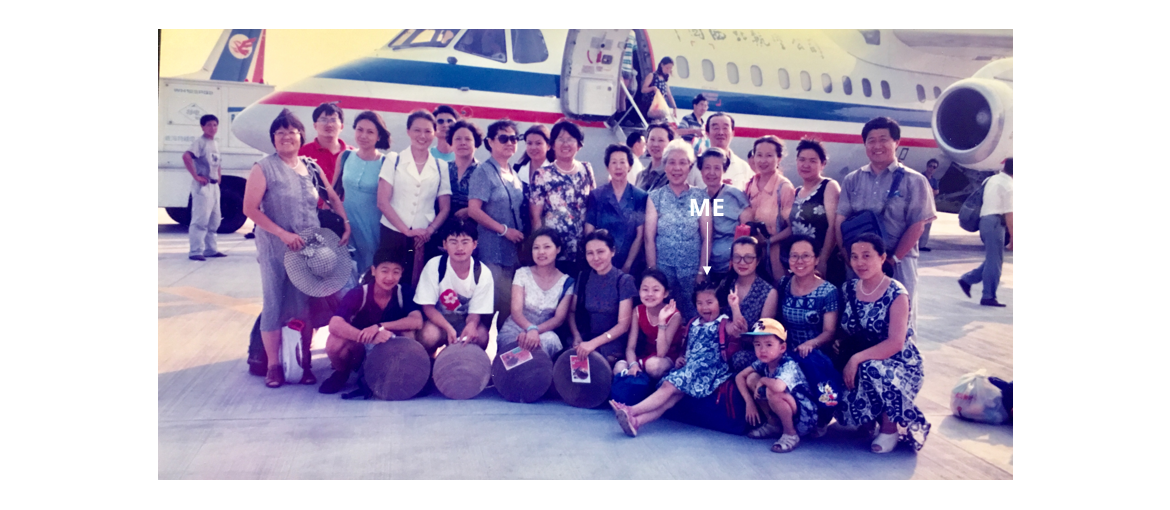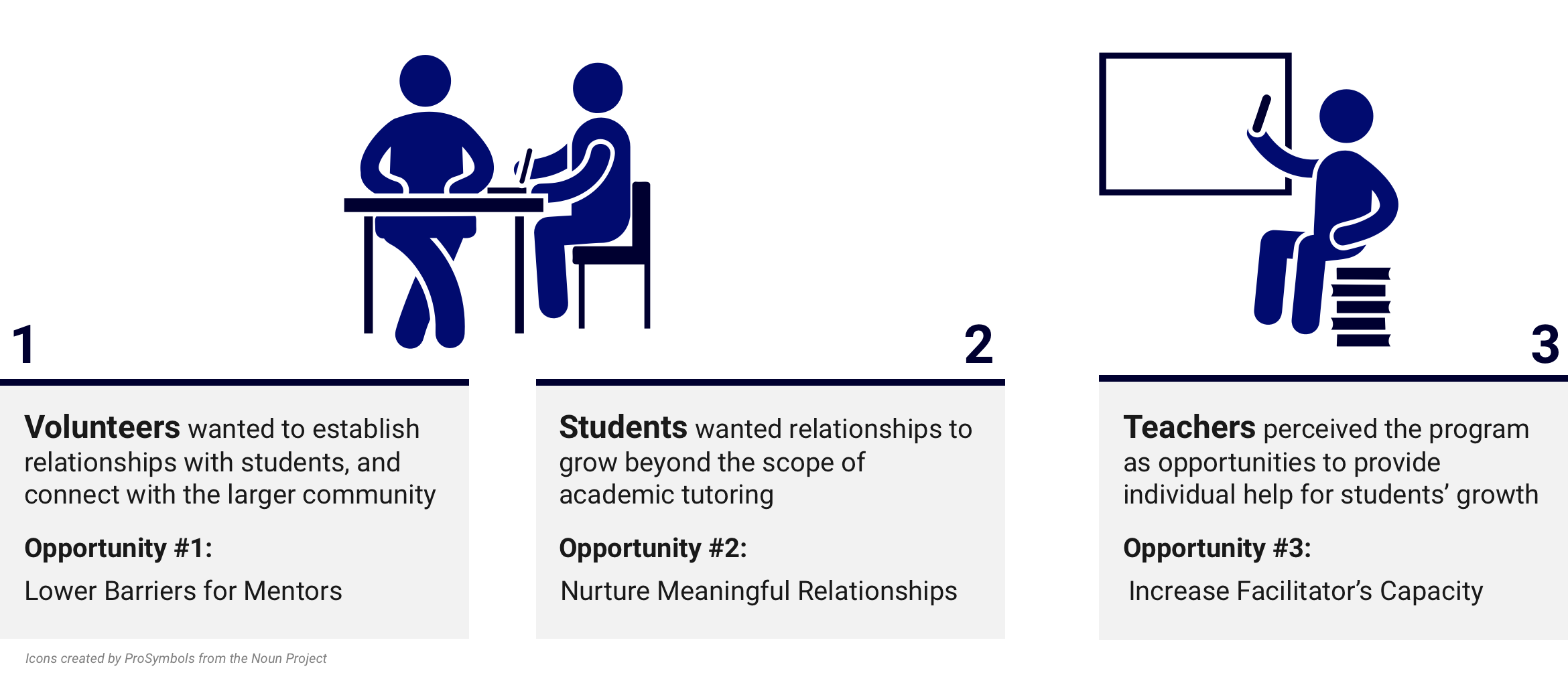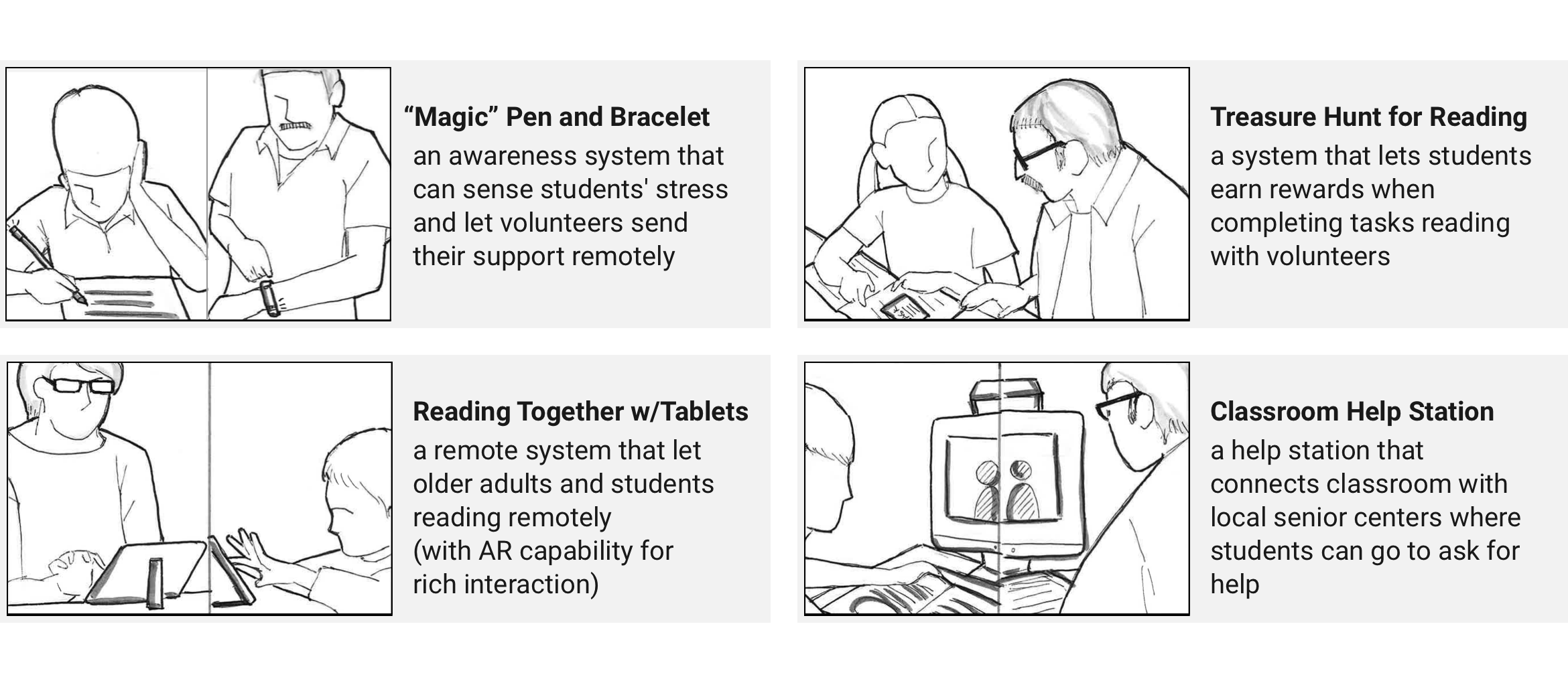(Cross-posted from Irene’s Medium)
As a child, I spent a lot of time with my parents’ retired colleagues in our community who often helped take care of children like me when our working parents were occupied. Yet to say, not all children have such caring older adults when they grow up and many older adults don’t have younger generations in their community as they age. Today’s communities have programs that specifically aim to connect the two generations. These programs often seek older adults’ experience and expertise to support children’s growth. However, there are challenges that prevent older adults from benefiting in these programs and we see opportunities for technologies to address these challenges.

To understand the current practice and challenges for intergenerational connection within communities, we partnered with a local organization, DARTS. DARTS has a program called Learning Buddies which focuses on connecting older adults with local elementary school students through tutoring (reading, match, etc.). The program has been operating for over 20 years, but many challenges still exist with the current structure that could stop both generations from benefiting from this resource. How can technology help maintain and extend access to this resource? To answer this question, we closely observed and interviewed the participants of Learning Buddies, including the volunteers and the participating elementary schools. In our recent CHI paper, in which we analyzed both volunteers and students’ needs and current practices, we identified a previously unacknowledged key stakeholder in this practice: teachers. We believe that teachers play a vital role in the success of intergenerational mentorship, and summarize potential technological opportunities in the following diagram:

(More details can be found in our paper here. Our paper has also received an honorable mention at CHI 2019!)
Currently, we are working with older adults and teachers to design technology systems and convert their favored ideas into functional prototypes. We have developed four system ideas that will support current intergenerational mentoring practices, nurture meaningful relationships, and give more older adults access to this resource. Let us know what you think about these systems via the Google form below!
